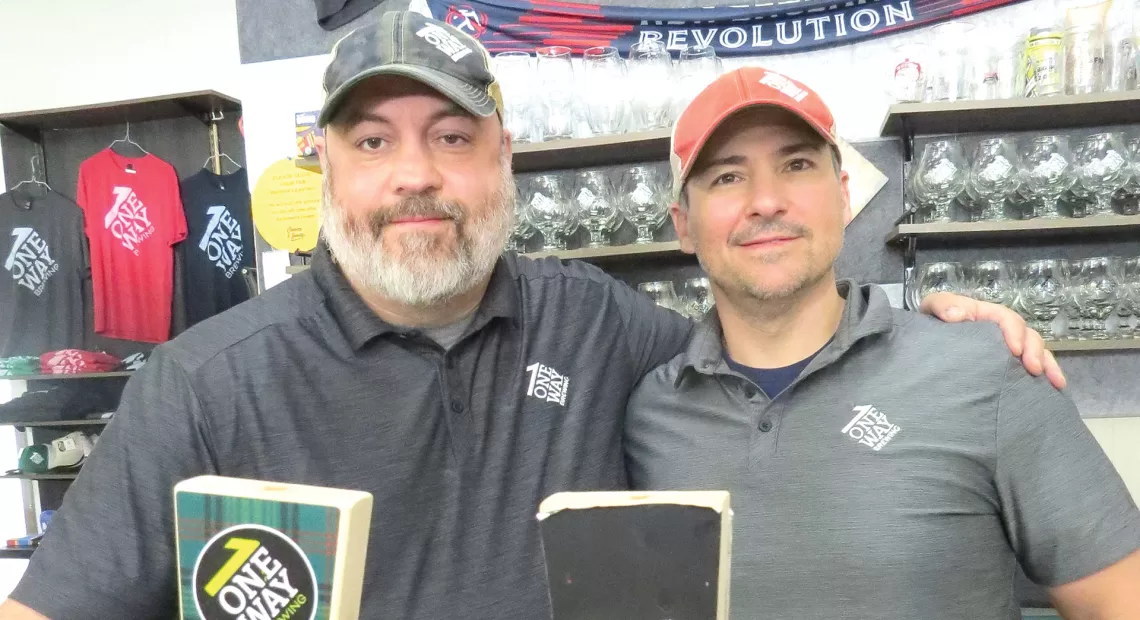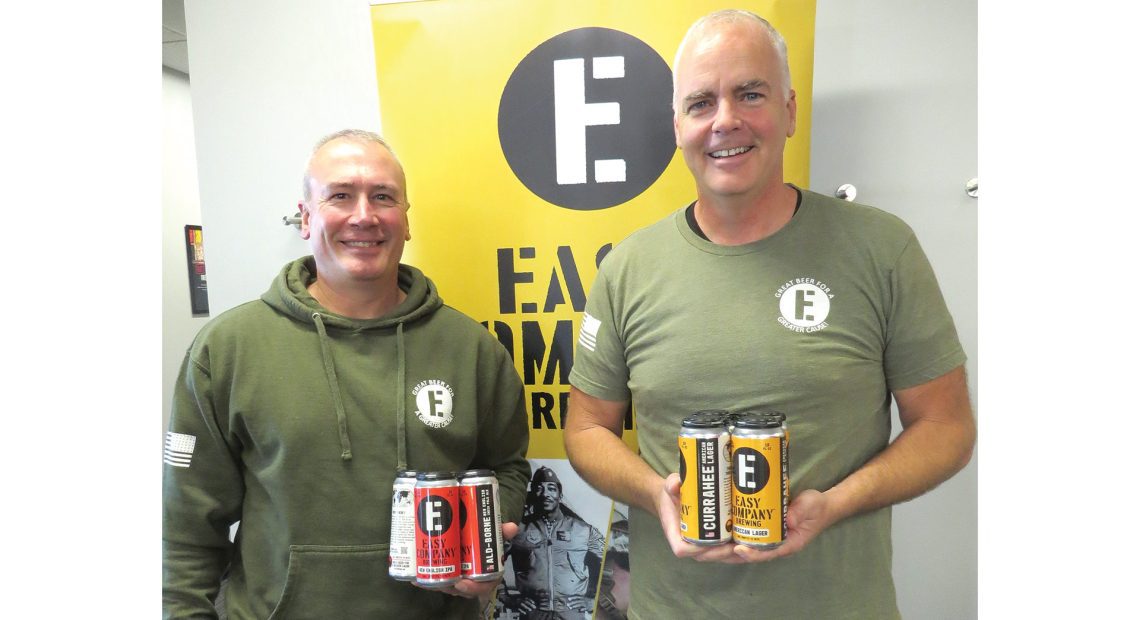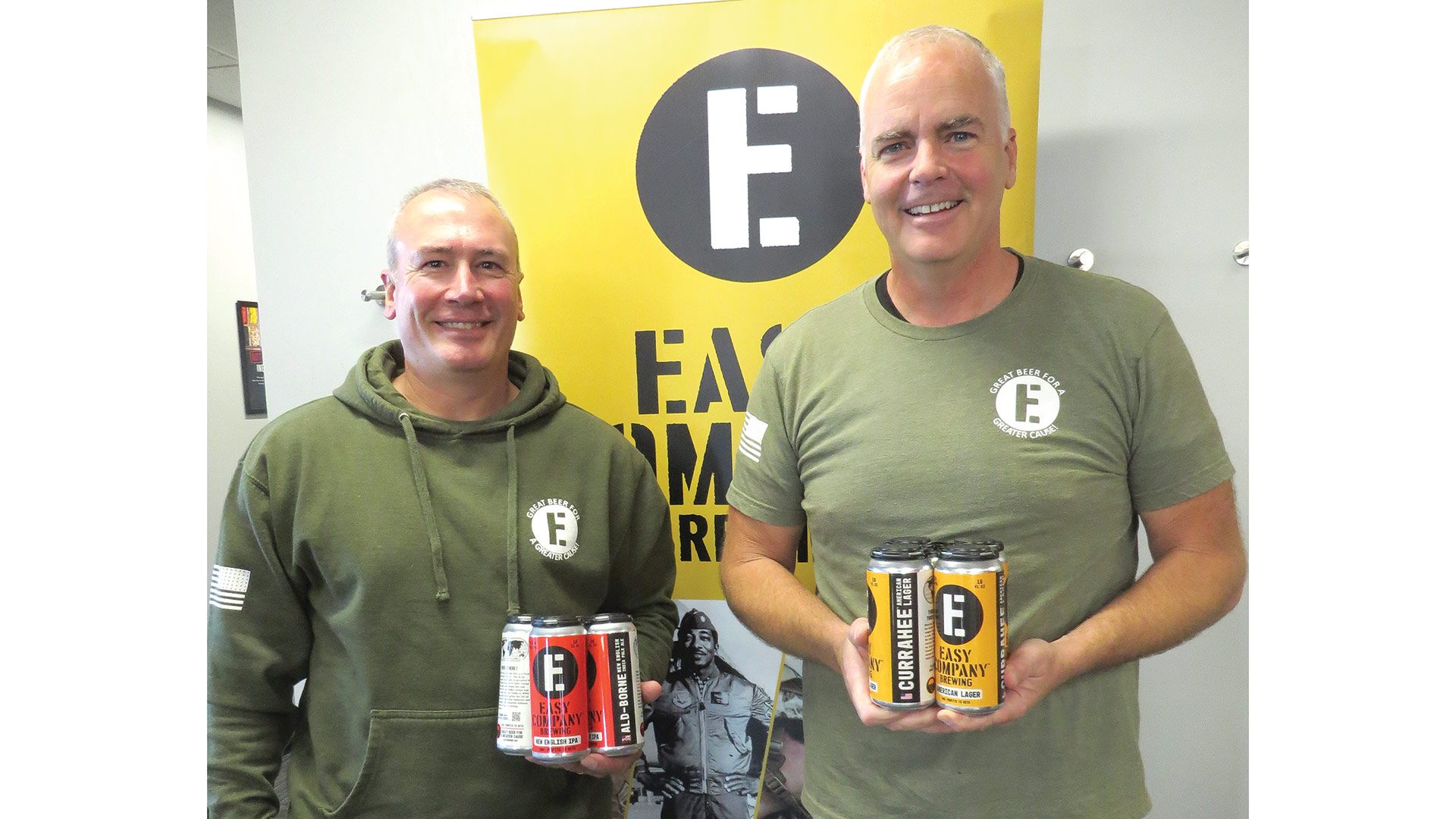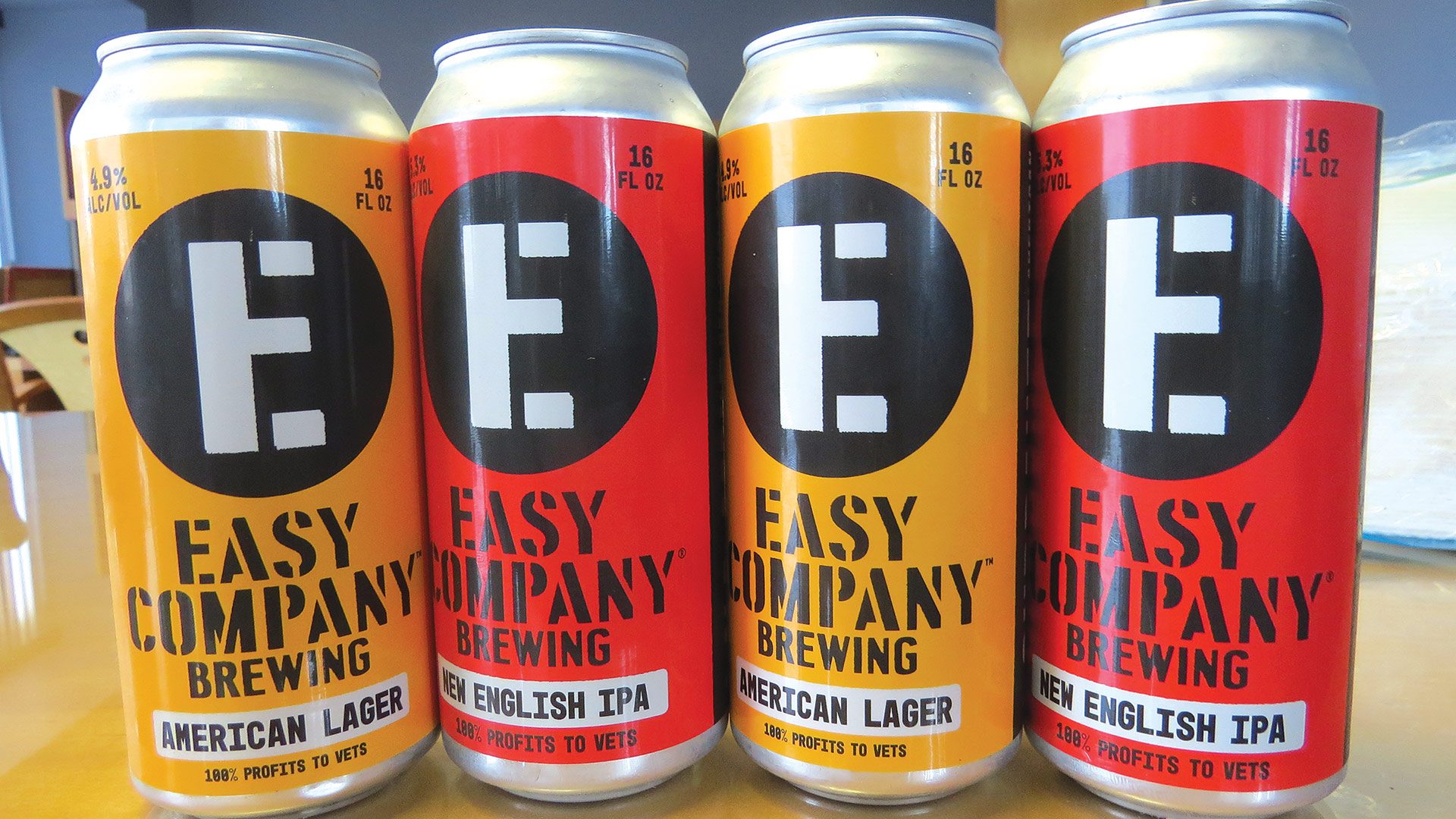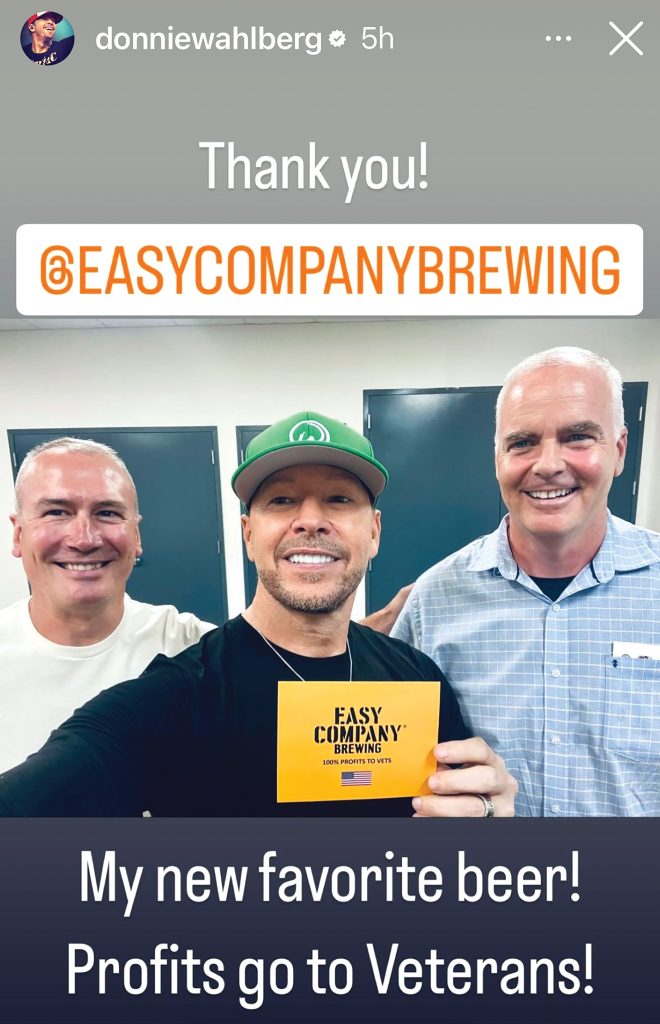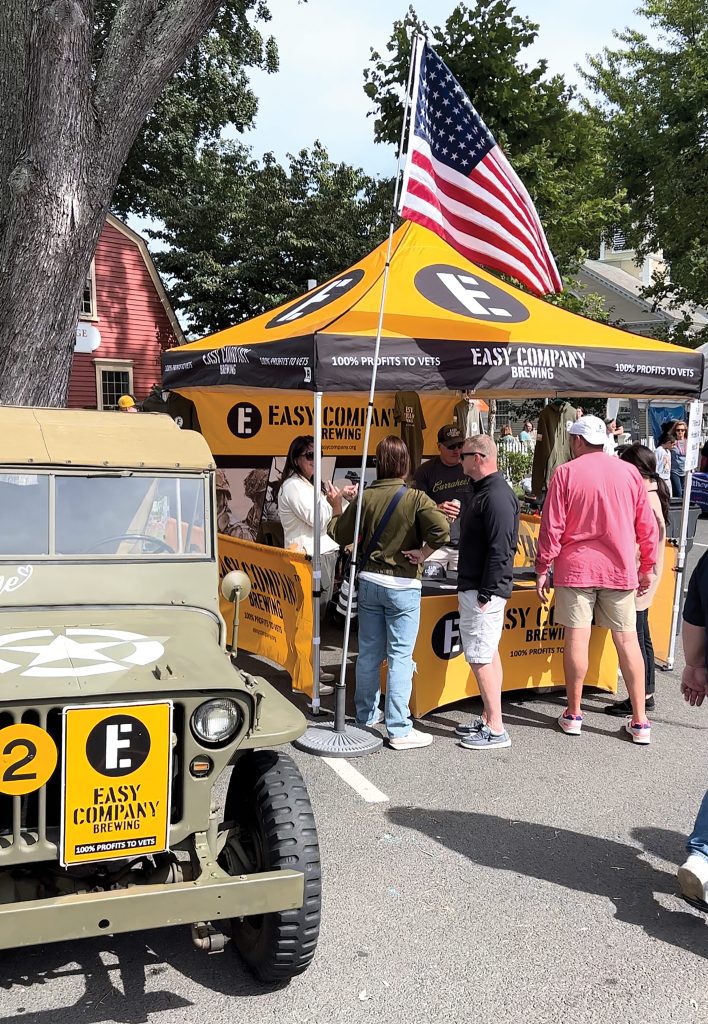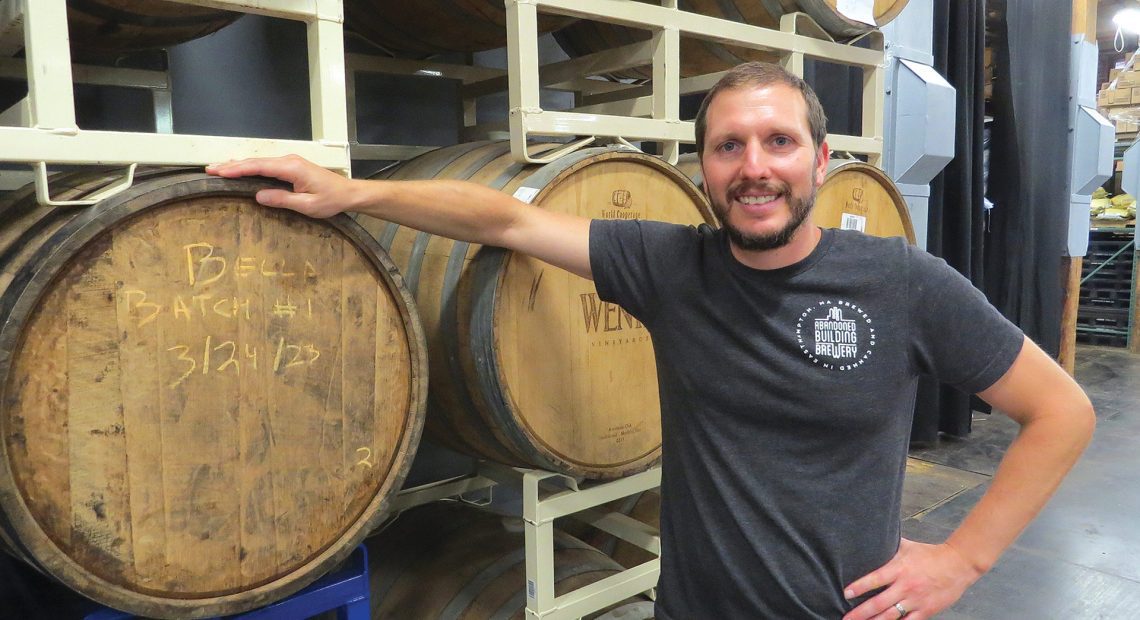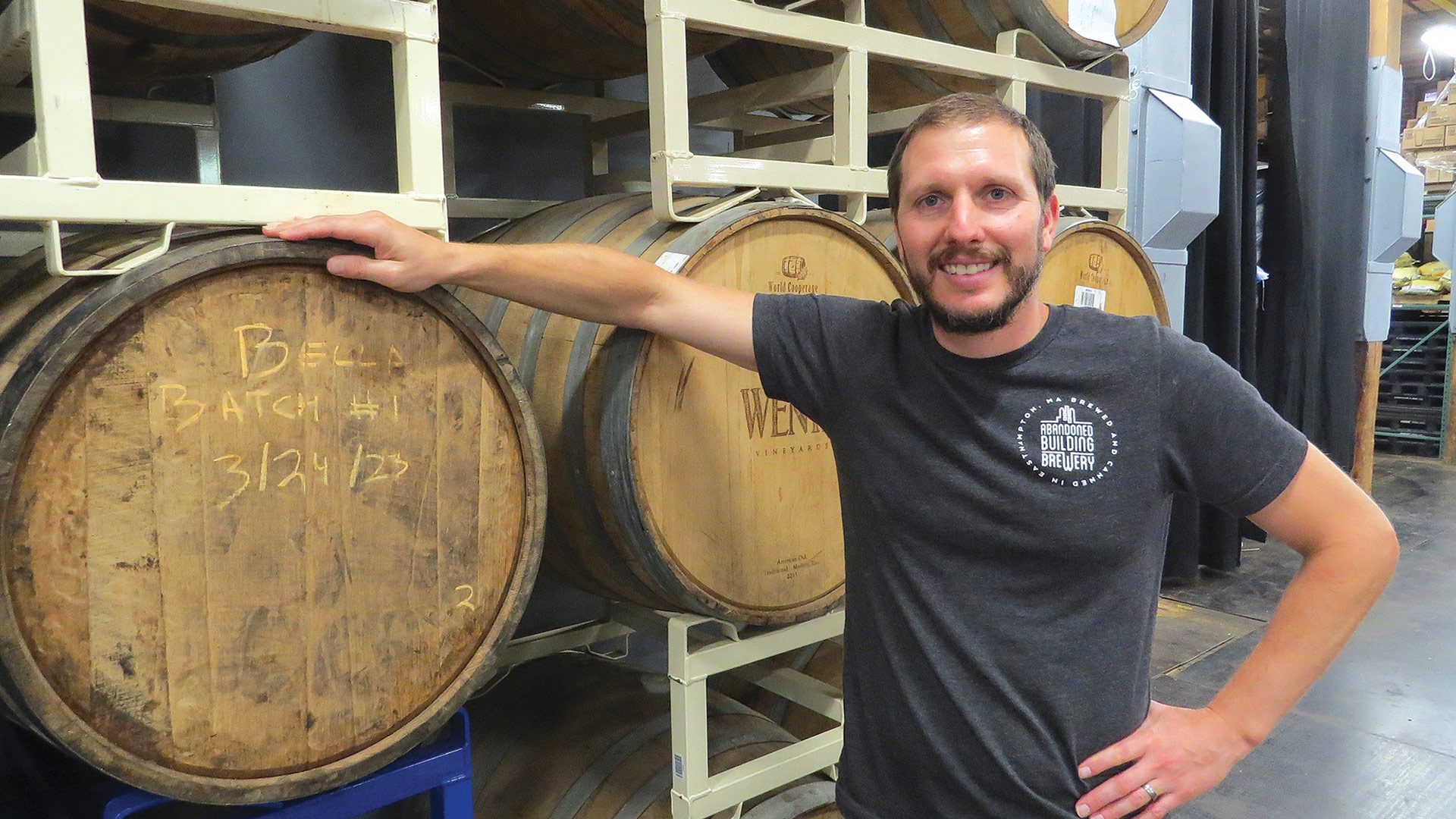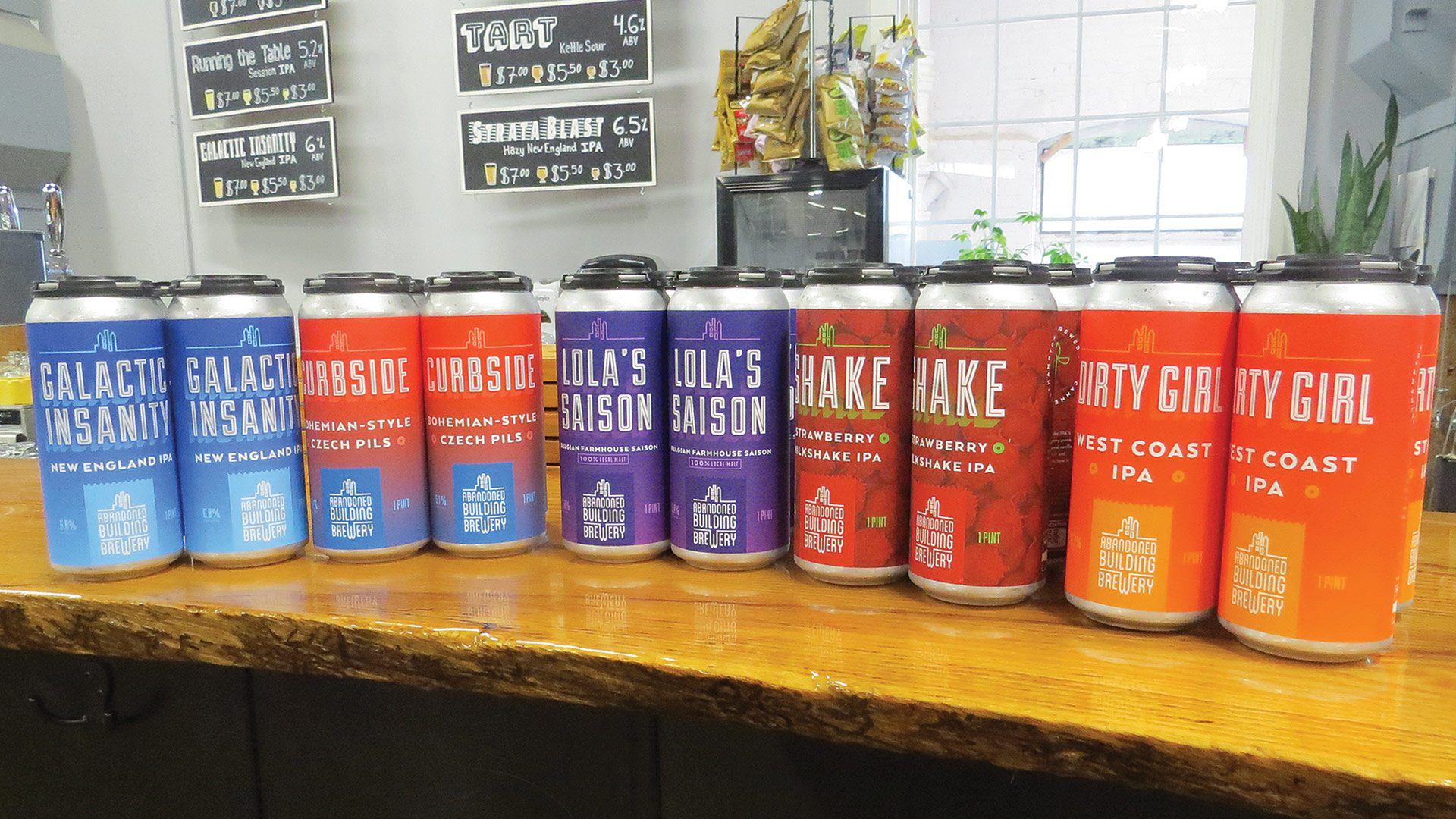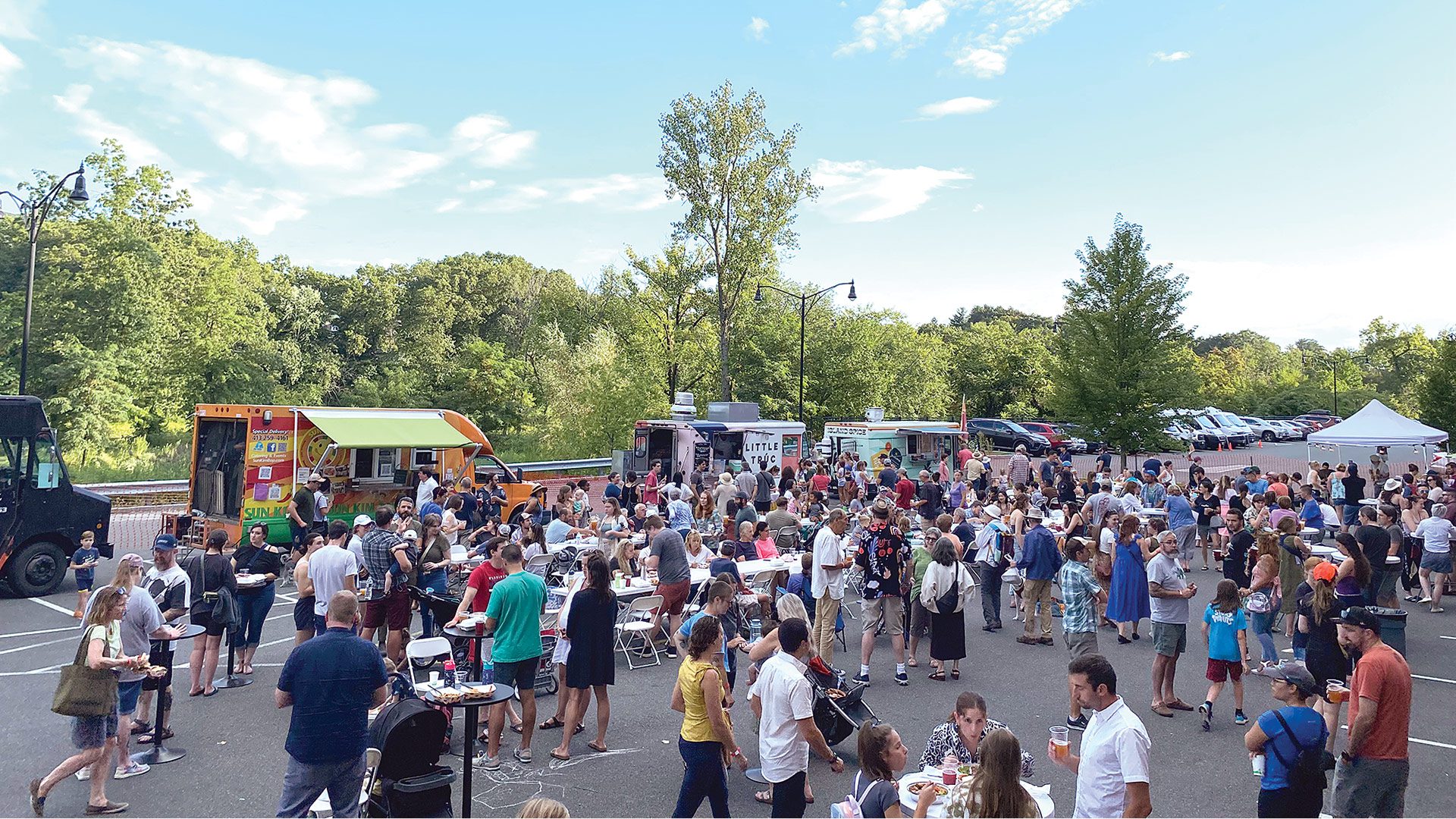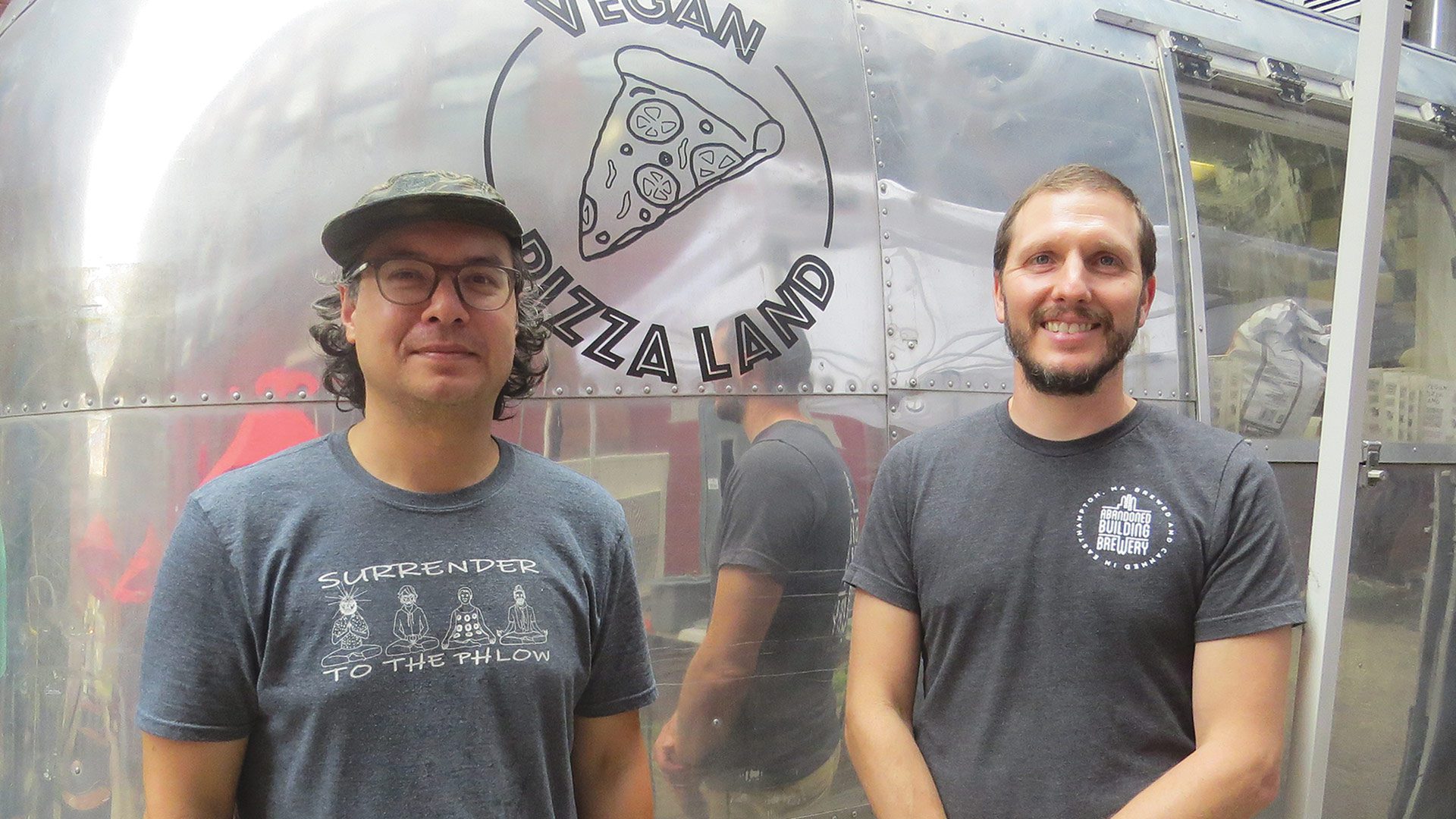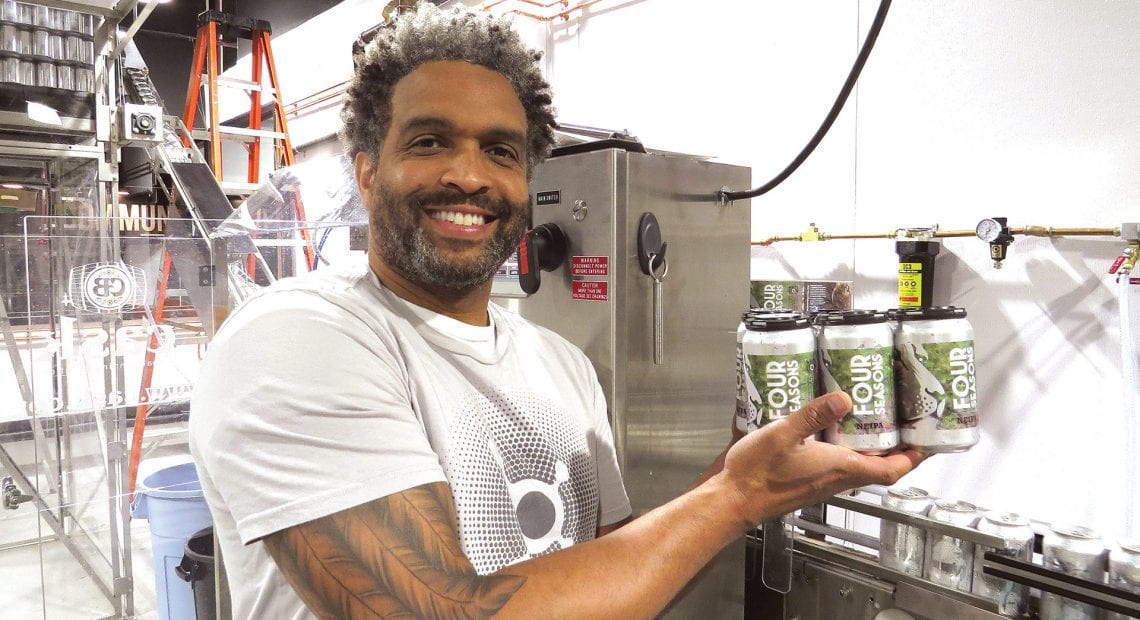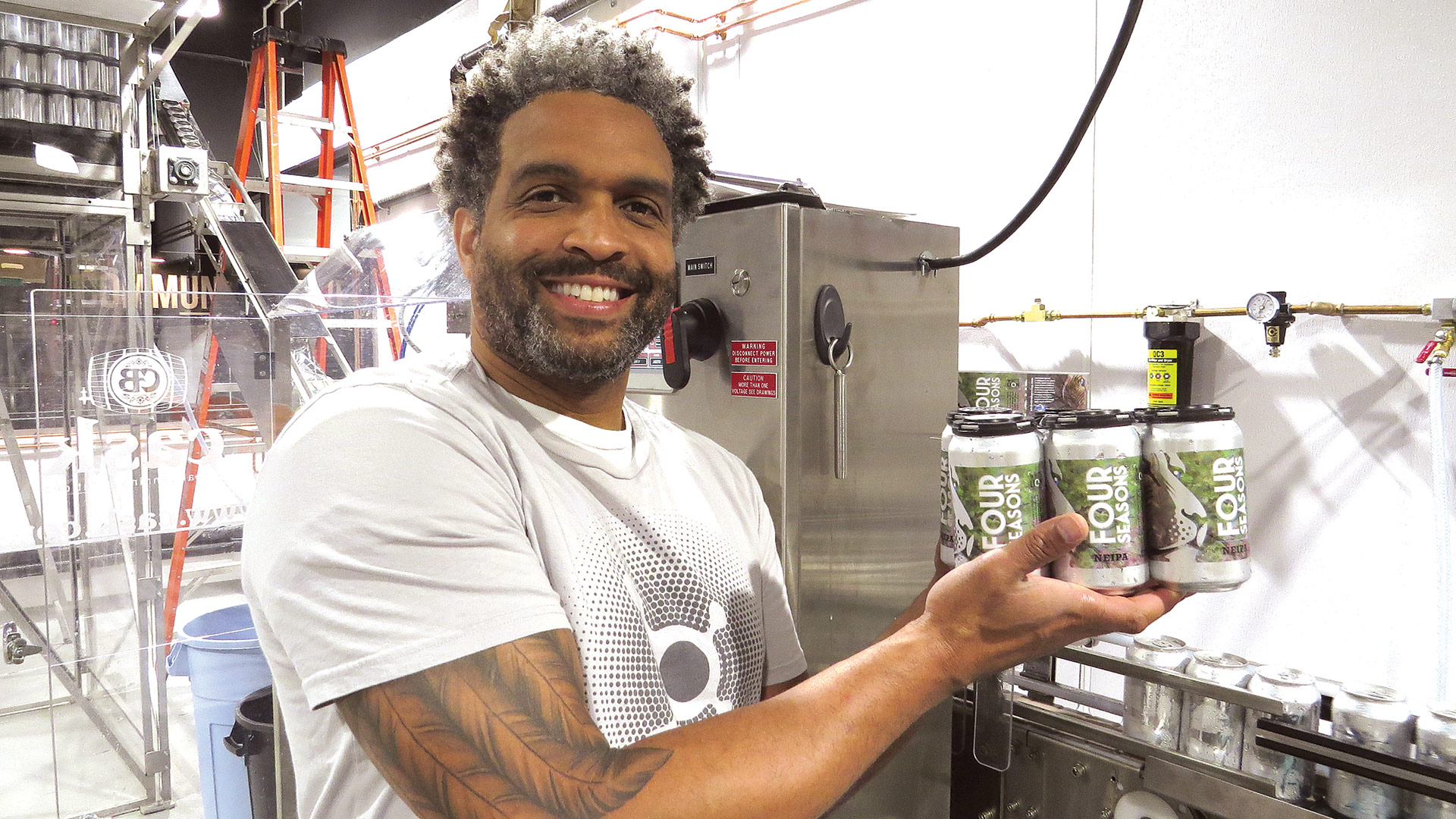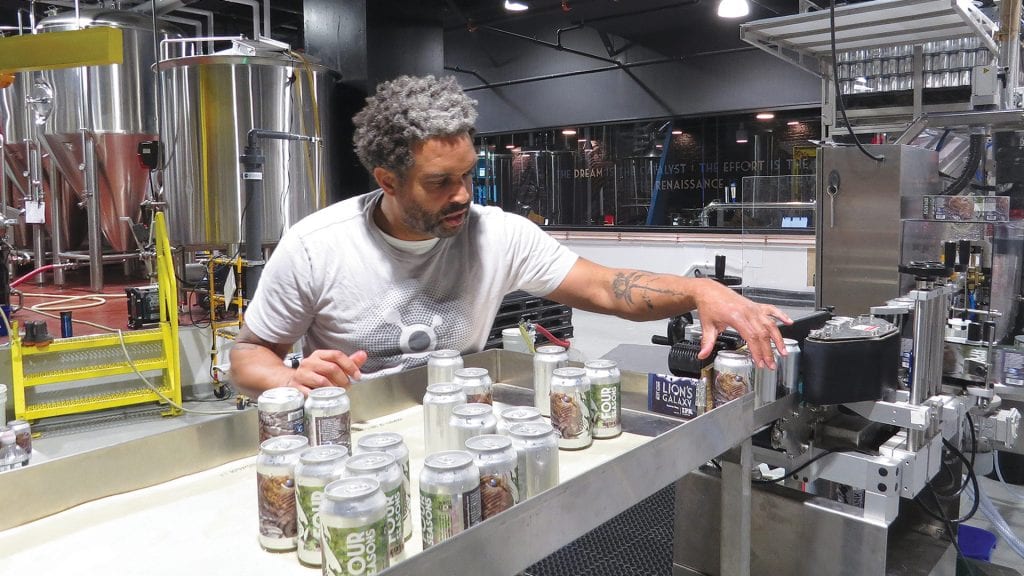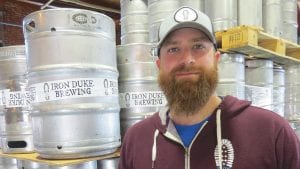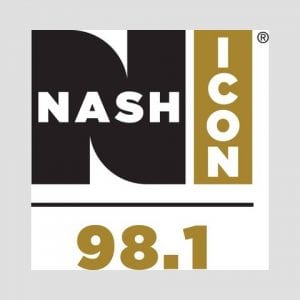Getting Revved Up
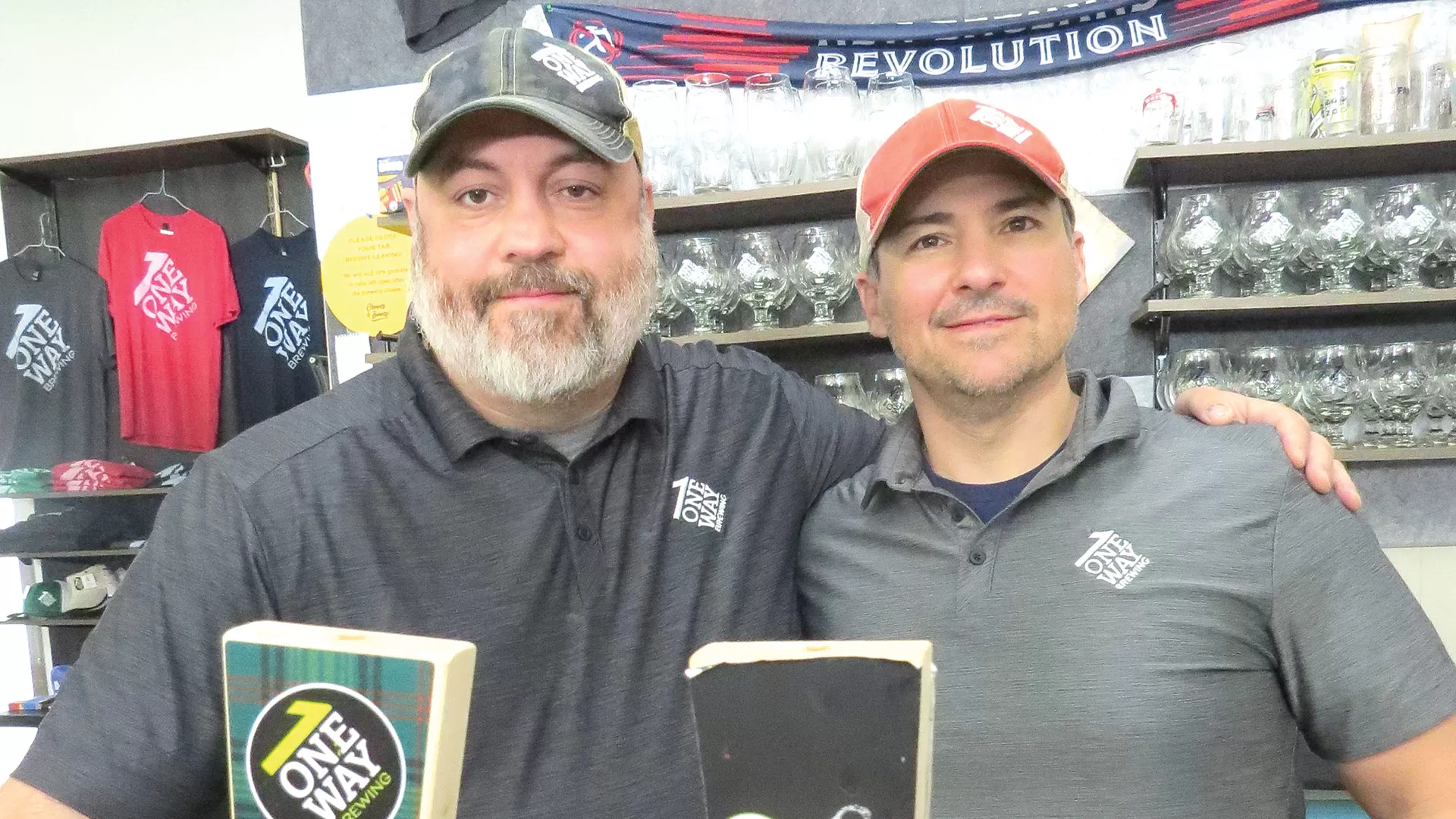
Zach Schwartz (left) and Jason Tsitso have One Way Brewing on the fast track to continued growth.
As with every brewery operation in Western Mass., there’s a story behind the name of this venture, one Jason Tsitso has told many times.
It harkens back to the days when he was a motocross racer, he said, adding that one of his good friends at the time worked for Ryder truck rentals. Tsitso said he and another friend would often help out at the Ryder facility, and one day he discovered his bike covered with the ‘one-way’ stickers that were affixed to the company’s vehicles.
“The next day, I was racing in a moto, and I was doing well, and the announcer said, ‘296 from One Way Racing,’” he went on, adding that, soon thereafter, he actually created a racing team with that name, complete with jerseys and other apparel with a ‘one-way’ logo.
And when he started home brewing with one of those friends from his racing days, they started tossing around ideas for a name and settled on something from the past. And it has stuck.
But there are other meanings behind this brand that Tsitso has established and grown with partner Zach Schwartz.
“There’s only one way to brew beer, and that’s fresh and local,” he told BusinessWest, adding that this way has helped give their brand a following, one that has enabled it to become one of the many emerging craft-beer labels in the 413 and a developing success story.
The two partners now have a taproom on Maple Street in Longmeadow, across from the plaza that was destroyed by fire just after they opened (more on that later), and a growing portfolio of craft beers, a few of them with racing-related names, such as Brraaap! (that’s the sound motorcycles make when their drivers hit the throttle), a New England IPA; and Kick Starter, another New England IPA, with which the partners got things started.
But there’s also the Betty, a Scottish export ale, One Rustic Cranberry Stout (no explanation needed for that one), One Hard Lime Seltzer (ditto), and others.
“Home brewers will come in and ask, ‘what’s your favorite? It’s very hard to be objective when all of these beers are your babies.”
The business plan is rather simple and direct, Schwartz said — to continue developing more of these beers and continue building on the solid foundation they’re created.
For Tsitso, vice president of Operations for a commercial construction company, and Schwartz, owner of Manchester, Conn.-based Fusion Cross Media, a printing company, this is still a part-time pursuit, or “passion,” as they call it, but one that is absorbing ever-larger amounts of the time not spent at their day jobs.
“This is more of our passion project,” said Tsitso, who also takes the title of head brewer. “Zack and I both like to build things, and this was our project when we started out. We wanted to see where we could take it and build it from grassroots; we expand as we have the bandwidth to do so.”
For this issue and its focus on breweries, BusinessWest takes an in-depth look at One Way Brewing and how its fast start has it on track for a high-octane brand of success in this sector where there’s friendly competition — or, as Tsitso described it, a “community” where customers are shared.
Lager Than Life
As he and Tsitso talked one recent Saturday morning about One Way Brewing, the route traveled to date, and where the road might take them from here, Schwartz first went about describing what they’ve created on Maple Street, and how it is different from a bar.
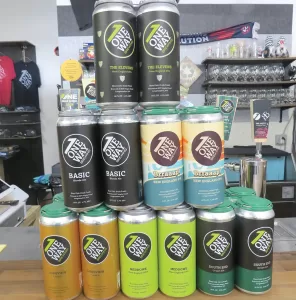
One Way’s portfolio of craft beers continues to grow and now includes a wide spectrum of offerings.
“At a bar, you eat food, you have a drink, and maybe you watch TV,” he told BusinessWest. “Here at the brewery, Jason and I talk business with you. I don’t want to say that we’re entertaining, but we are engaged. And people are always asking questions — ‘how did you come up with that?’ and ‘what are your ingredients?’ or ‘what malts did you use?’
“Home brewers will come in and ask, ‘what’s your favorite?’” he went on. “It’s very hard to be objective when all of these beers are your babies.”
And that’s essentially how this venture started — two guys, Tsitso and Schwartz, talking about brewing, then doing it, and never stopping when it comes to asking questions, perfecting their craft, and creating more of these ‘babies.’
Elaborating, the two partners said they’ve known each other a long time and that their daughters hung out together. They both developed a thirst for craft beer — Tsitso has always had one, and Schwartz’s developed over time.
“I would say we got him into craft beer four ounces at a time,” Tsitso said of Schwartz, adding that they and other friends would do a lot of tasting over the years, activity that would eventually lead them down that stimulating but challenging path that would take them from tasters to brewers.
“We got tired of waiting in line,” Tsitso said with a laugh, adding that, rather than queuing up for other brewers’ offerings (although they still did some of that, too), they decided to brew their own.
They started attending brew fests, which back then drew both professional and home brewers, and found themselves often mistaken for the former.
“At our first brew fest, we had a logo, we had a brand, we looked like pro brewers,” Schwartz recalled. “We were at a beer fest in Vermont, and people kept asking, ‘where’s your brewery? We want to check out your brewery.’ And we said, ‘we brew out of our garage.’
“And at every brew fest after that, people would enjoy and ask the same thing — ‘where’s your brewery?’” he went on, noting that with those comments as inspiration — and as the pandemic forced brew fests to take a lengthy pause — they eventually went about creating one.
They began with cans and eventually opened their taproom after COVID restrictions were fully lifted in the spring of 2021.
As for beers, they started with … Kick Starter, a beer that would in many ways set the tone for this venture.
“It came about as West Coast IPAs were really popular and New Englands were just getting started,” Tsitso recalled. “Our whole concept with that beer was to create something that was really approachable for non-IPA drinkers, was well-balanced, and really got them into enjoying IPAs and broadening their beer drinking.”
Draught Choice
This same thought process has gone into subsequent additions to the portfolio, including Brraaap!, which was created to mark the two-year anniversary of the opening of the taproom; One Hard Lime Seltzer; One Rustic Cranberry Stout; and Spilled Milk Mango, a mango milkshake IPA and another popular seller.
While Tsitso is the head brewer and recipe developer, the two will work together on potential additions to the roster, looking at what might be missing from the lineup and what the next logical new label should be.
The same is essentially true of the broad business plan, said the partners, adding that the goal is sustainable growth and building on the solid base they’ve created.
“One thing we’ve always tried to do is not overextend ourselves and get to the point where we can’t manage it, either from the stress level or it just doesn’t become fun anymore,” Tsitso said. “As we get the bandwidth to expand, we expand.”
Possible avenues for expansion include a larger footprint in the plaza where they’re currently operating, and enhanced distribution, with most of it coming currently at the taproom, with beers on tap in only a few area restaurants.
Moving forward, the partners say they’re looking forward to operating with the nearby shopping plaza rebuilt. Former anchor Armata’s grocery store will not be part of the new mix, as it was destroyed by fire just a few months after they opened in the spring of 2021, but they could already see that it helped drive traffic to their business, and they long for the day when that busy intersection can turn back the clock and become a true destination.
“We’re excited that they’re rebuilding across the street, because that will really enhance traffic,” said Schwartz, adding that the taproom has a solid working relationship with a pizza shop next door and other businesses at that intersection.
Meanwhile, the partners are already drawing visitors from Longmeadow, East Longmeadow, Springfield, Enfield, and well beyond, he went on, noting that craft-beer enthusiasts travel well and are willing to put some miles on the odometer to experience something new and different.
Still, the taproom’s bread and butter is a cadre of regulars who come, as Schwartz noted earlier, not simply to drink beer, but to talk beer and experience beer.
“In the beginning, we bartended Thursday and Friday nights; we alternated every week,” he went on. “And those regulars … we developed relationships with them, talked beer with them, and shared our passion and dream with them. A lot of them come here to drink beer and visit — it’s that kind of atmosphere here.”
All this has made One Way not just a business, although it is certainly that, but also a passion, one that has taken the high road to success and is certainly revved up about what might come next.



